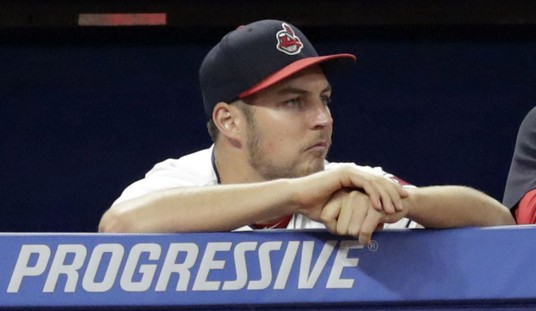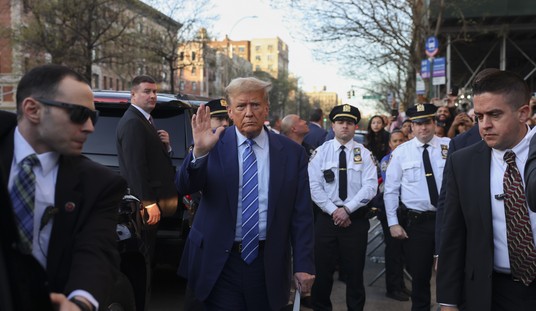Is the notion of the movie star obsolete? Barry Norman of the London Daily Mail seems to think so — and he blames Hollywood’s teenage audience for making Hollywood’s teenage-looking leading men increasingly superfluous. “Today, the mass of cinema audiences is aged between 15 and 18 — and that’s what poses such a threat to the existence of big movie stars:”
Kids of that age are not interested in veterans like Hanks (55), Cruise (49) or even Depp (48), except when he plays Jack Sparrow in the frankly juvenile Pirates Of The Caribbean series. Watching old men like them on screen would be like watching their fathers cavorting about.Even Roberts (44), Diaz (39) and Jolie (36), desirable as they might be to the audiences’ dads, come across as little more than auntie figures.
This modern, young audience has no interest in the established stars. What it wants to see is either people closer to its own age (for instance Robert Pattinson, 25, as a toothsome vampire in the Twilight saga) or crash-bang special effects in films such as the sci-fi Transformers series, or in the X-Men superheroes films, or the forthcoming Captain America.
They’re also partial to movies with men behaving badly, such as Hangover 2, or girls behaving badly, as in America’s surprise hit of the summer, Bridesmaids — neither of which features anybody you’ve ever really heard of.
Found via the IMDB, film blogger MaryAnn Johanson responds:
All true, but nothing we haven’t been hearing about for several years, at least. But somehow the failure of the Tom Hanks/Julia Robert vehicle Larry Crowne seems like a milestone in the slo-mo death of the movie star. It’s not that audiences didn’t respond to it but the reason why they didn’t respond: It’s not a very good movie. It’s like the movie stars aren’t even trying anymore.
Is this just more of the same doom-and-gloom we’ve been hearing for a few years now? Or is something bigger happening?
Is Hollywood imploding? Are we seeing a seimic shift in how Hollywood operates, perhaps akin to the shift to blockbusters in the late 1970s? Can Hollywood endure making only movies for kids? What will Hollywood look like in 10 years?
As we mentioned here last week, 20 years ago, reporter Julie Salamon documented how political correctness made it virtually impossible for Hollywood to successfully film a movie version of The Bonfire of the Vanities. At the time of her book The Devil’s Candy, PC had only then just begun to escape from the laboratory of the mad scientists of academia and seep into the media overculture. A decade later, PC would make it nearly impossible for Hollywood to tell the story of 9/11 and the then-nascent War On Terror. By the middle of the first decade of the 21st century, Hollywood seemed like it was only capable of working off a handful of templates:
- The Epic Quest movie (The Lord of the Rings, Narnia, and Star Wars franchises.)
- The mindless zillion dollar popcorn action movie, usually with a sci-fi or comic book theme, and often itself a variation on the Epic Quest formula.
- Raunchy sex comedies.
- Anti-War agitprop.
- Small-budget art films for urban (read: left-wing audiences).
- Small-budget documentaries for urban (read: left-wing audiences).
- And the Pixar franchise.
Which is why the question of Hollywood’s implosion was being asked six years ago — when the rest of the economy was humming along rather swimmingly, at least compared with today. (Curiously, Hollywood seemed to do OK during the Depression of the 1930s. Wonder why?)
Back then — in 2005, not 1935 — Mark Steyn wrote:
Hollywood is in the middle of its worst box-office slump in decades. Well, they hope it’s the middle, if not halfway through the seventh reel. And no one can quite figure out why this should be. The non-blockbusters are no better or worse than their equivalents of a few years’ back. What’s gone wrong?Here’s one thought. The other day, before the new Bewitched (don’t ask), I sat through a trailer for Stealth. This is a high-tech action thriller about USAF pilots zapping about the skies in which the bad guy is the plane. That’s right: an unmanned computerised plane goes rogue and starts attacking things. The money shot is — stop me if this rings a vague bell — a big downtown skyscraper with a jet heading toward it. Only there are no terrorists aboard the jet. The jet itself is the terrorist.
This is the pitiful state Hollywood’s been reduced to. The Tom Clancy novel The Sum of All Fears was about Islamic terrorists, so naturally the film version made them neo-Nazis. The Nicole Kidman snoozer The Interpreter was about Islamic terrorists attacking New York, so naturally they were rewritten into terrorists from the little-known African republic of Matobo. But doubtless some studio exec panicked that, what with all this Live8 business, it might look a bit Afrophobic to have any more Matoban terrorists. Safer not to have any bad guys. Let’s make the plane the bad guy. In the Eighties and Nineties, upscale Brits like Jeremy Irons and Gary Oldman made a nice living playing the exotic foreign evildoer in Hollywood, but, unless Jeremy’s been practising going brm-brm and taxi-ing down the garden path with outstretched arms, I don’t think he’s going to be getting many roles as the psycho aeroplane. That’s my theory on why the box-office is down: in ‘interesting times’, Hollywood is making films about nothing.
A year prior, James Lileks dubbed that era of Hollywood “the Golden Era of beating around the bush” about the GWOT, the biggest story of that era. In 2006, Steven Spielberg would be quoted as saying, “If storytelling becomes a byproduct of the digital revolution, then the medium itself is corrupted.” It is indeed corrupted — at least when compared with an earlier generation of Hollywood’s ability to tell a story, but wasn’t digital effects that did it, anymore than Linwood Dunn’s invention of the optical printer in the 1930s ruined Hollywood’s ability to tell a story.
But a decade into the 21st century, as MaryAnn Johanson asked above, “Can Hollywood endure making only movies for kids? What will Hollywood look like in 10 years?”
As the stories that PC Hollywood feels it can tell get ever-narrower, and as its star-power diminishes, and as Hollywood’s more outspoken stars continue to alienate flyover country, the image one is left with is that of an industry circling the drain.
So what will Hollywood look like in another decade? More importantly, what sort of domestic audiences will there be for its product?
Your guesses are as good as mine — so have at it in the comments.









Join the conversation as a VIP Member